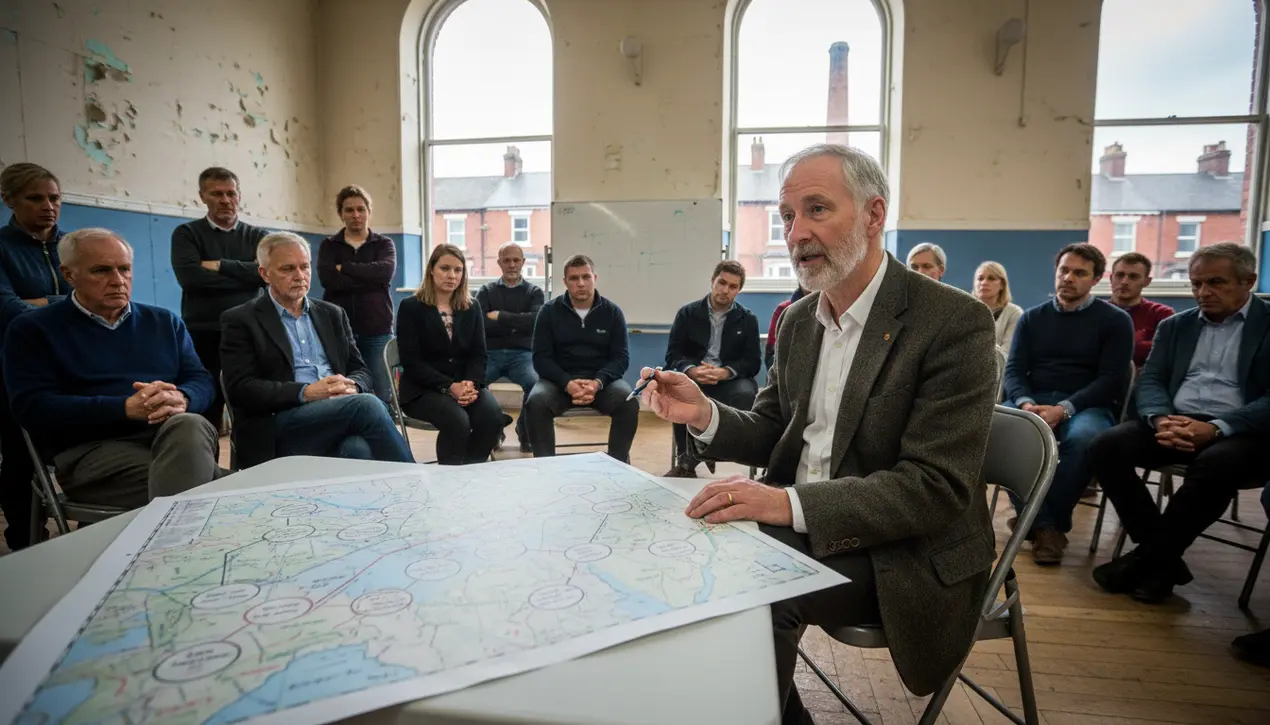
OthereducationEdTech Innovations
Development Economist Advises Struggling Hometowns
LA
Laura Bennett
2 hours ago7 min read
Paul Collier, a man who spent decades with his gaze fixed on the economic fractures of the world's poorest nations, has now turned his attention to a landscape both intimately familiar and profoundly complex: the struggling towns of his own youth. It’s a homecoming that feels less like a retreat and more like the application of a lifetime's learning to the soil from which he first grew.For years, his work was a global affair, dissecting the failures of states and the traps of poverty in far-flung places, yet the call of home—the quiet, persistent struggle of the communities that shaped him—proved irresistible. This pivot from the macro to the micro, from advising governments on international development to sitting in town halls and community centers, is a narrative rich with human contradiction.What does it mean for a global expert to diagnose the ailments of his own backyard? There’s a unique psychology at play here, a blend of personal duty and professional clarity. He isn't an outsider parachuting in with a briefcase of solutions; he is, in a very real sense, a product of the very ecosystem he now seeks to mend.This brings an unparalleled depth of understanding, but also the heavy weight of expectation and the ghosts of personal history. One can imagine the conversations, not held in sterile conference rooms but in local cafes, where the abstract theories of economic divergence meet the tangible reality of a shuttered factory or a generation of young people with dwindling prospects.Collier’s advice likely isn't a simple list of policy prescriptions. It’s probably a more nuanced dialogue, drawing parallels between the resource curses of nations and the brain drain of small towns, between the institutional voids in developing economies and the crumbling civic infrastructure in post-industrial Britain.He’s navigating the delicate space where data meets lived experience, where a graph of GDP per capita translates to the story of a family that has lived on the same street for a century, watching its vitality slowly ebb. The challenge is Herculean.These towns often suffer from a vicious cycle: a lack of opportunity drives away the most ambitious, which depletes the local talent pool, which in turn deters new investment, further cementing the decline. Collier’s work, then, is about identifying and reinforcing the few remaining pillars of resilience—perhaps a local college, a unique geographical advantage, or a cluster of small, adaptable businesses—and helping the community build a new narrative around them.It’s a process less about grand, sweeping rescue plans and more about patient, strategic nurturing, about convincing people to believe in a future they can barely remember. This is deeply human work, a testament to the idea that the most difficult problems to solve are often the ones we are closest to, precisely because we care so much.The success or failure of this endeavor won't just be measured in economic metrics, but in the restoration of hope, in the subtle shift from a mentality of managed decline to one of purposeful regeneration. Paul Collier’s journey back to his roots is a powerful reminder that sometimes, the most profound expertise is applied not to the most distant problems, but to the ones that call you home.
#featured
#development economics
#Paul Collier
#struggling towns
#regional development
#economic policy
#local economies
#applied research
Stay Informed. Act Smarter.
Get weekly highlights, major headlines, and expert insights — then put your knowledge to work in our live prediction markets.
Related News
Comments
Loading comments...
© 2025 Outpoll Service LTD. All rights reserved.